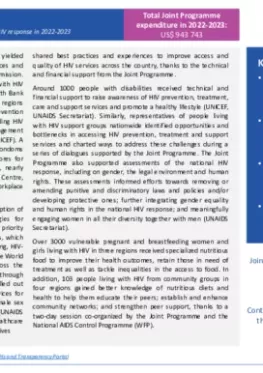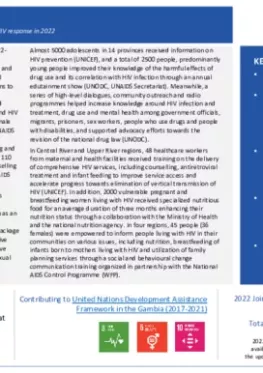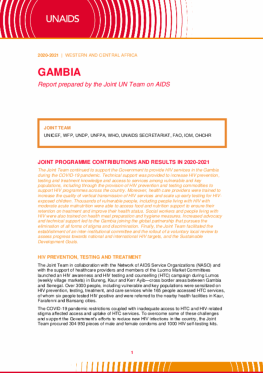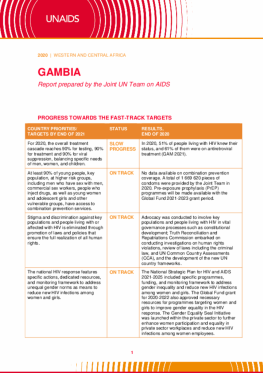|
Gambia
In 2022-2023, the Joint Programme support in Gambia yielded considerable results in reinforcing HIV prevention services and education, including for the prevention of vertical transmission. For instance, 115 pregnant women and mothers living with HIV accessed HIV counselling and testing services in the North Bank region (UNFPA); and 116 healthcare workers from five regions improved their capacity of delivering services for the prevention of vertical transmission and early infant diagnosis, including HIV testing and counselling and paediatric treatment management through trainings supported by the Joint Programme (UNICEF). A total of 100 000 HIV testing kits and over 724 000 male condoms were procured and delivered to the Central Medical Stores for distribution through the healthcare system. In addition, nearly 4000 condoms were dispensed at Niaba Kunda Youth Centre, while over 10 000 pieces were distributed during a workplace event in North Bank (UNFPA).
The Joint Programme supported the revision and/or adoption of stronger national HIV prevention policies and strategies for combination prevention for key populations and other priority groups. Moreover, new operational HIV testing guidelines, which now integrate innovative approaches, including index testing, HIV-self testing and recency testing, were rolled out. During the World AIDS Day commemorations, over 110 000 people across the country accessed HIV testing and counselling services through various community outreach initiatives. Gambia also rolled out pre-exposure prophylaxis (PrEP) and HIV self-testing services for gay men and other men who have sex with men and female sex workers following trainings of healthcare workers (UNAIDS Secretariat). Besides, 122 professionals, including healthcare workers, laboratory technicians and pharmacy representatives shared best practices and experiences to improve access and quality of HIV services across the country, thanks to the technical and financial support from the Joint Programme.





